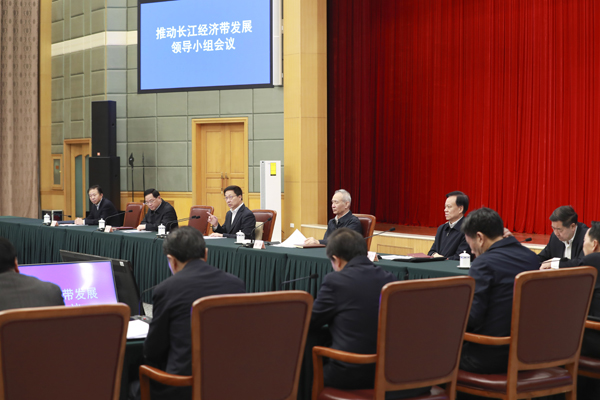
Vice-Premier Han Zheng, also a member of the Standing Committee of the Political Bureau of the Communist Party of China Central Committee and head of the leading group for promoting the development of the Yangtze River Economic Belt, presides over a meeting on promoting the development of the Yangtze River Economic Belt in Beijing, capital of China, Dec 14, 2018.[Photo/Xinhua]
BEIJING — Vice-Premier Han Zheng called for more concerted efforts to restore the environment of the Yangtze River economic belt to pursue green development.
Although some positive advancements have been made in the environmental control along the river, problems remain serious in terms of pollutant discharge, ecological damage and environmental risks, said Han at a meeting on promoting the development of the economic belt on Dec 14.
Han is a member of the Standing Committee of the Political Bureau of the Communist Party of China (CPC) Central Committee and head of the leading group for promoting the development of the Yangtze River Economic Belt.
He said protecting the Yangtze River is a political task, and restoring the river’s ecological environment shall be put in a dominant position.
“Having stricter requirements on ecological protection will force the regions along the river to seek high-quality development and explore a new path that puts ecology first and seeks green development,” he said.
“Seeing no problem is the biggest problem, while purposefully evading problems is a serious mistake and dereliction of duty,” Han said.
He urged local governments to be problem-oriented and constantly advance environmental protection along the river belt by discovering problems and straightening them out, in particularly by tackling law-breaking practices and what people are very concerned about.
Efforts must also be made to toughen the punishments against perpetrators, inadequate supervision, shielding or conniving lawbreakers and the colluding of interested parties, Han said.
A new mechanism must be established to facilitate the coordinated efforts by different regions along the river, clarify duties, tighten supervision and encourage public participation, he said.
A documentary revealing the environmental problems of the river was played at the meeting.